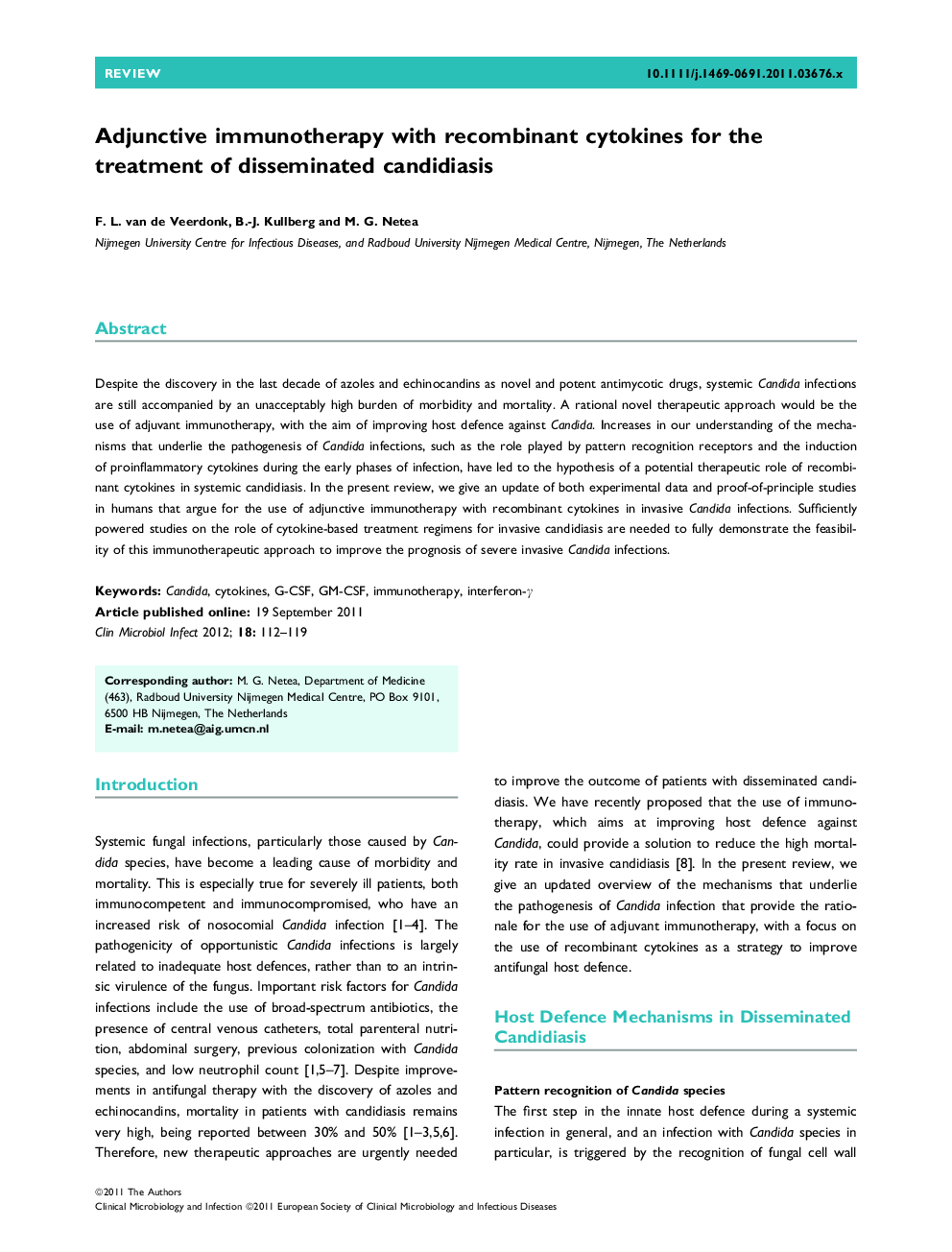| Article ID | Journal | Published Year | Pages | File Type |
|---|---|---|---|---|
| 3397344 | Clinical Microbiology and Infection | 2012 | 8 Pages |
Despite the discovery in the last decade of azoles and echinocandins as novel and potent antimycotic drugs, systemic Candida infections are still accompanied by an unacceptably high burden of morbidity and mortality. A rational novel therapeutic approach would be the use of adjuvant immunotherapy, with the aim of improving host defence against Candida. Increases in our understanding of the mechanisms that underlie the pathogenesis of Candida infections, such as the role played by pattern recognition receptors and the induction of proinflammatory cytokines during the early phases of infection, have led to the hypothesis of a potential therapeutic role of recombinant cytokines in systemic candidiasis. In the present review, we give an update of both experimental data and proof-of-principle studies in humans that argue for the use of adjunctive immunotherapy with recombinant cytokines in invasive Candida infections. Sufficiently powered studies on the role of cytokine-based treatment regimens for invasive candidiasis are needed to fully demonstrate the feasibility of this immunotherapeutic approach to improve the prognosis of severe invasive Candida infections.
